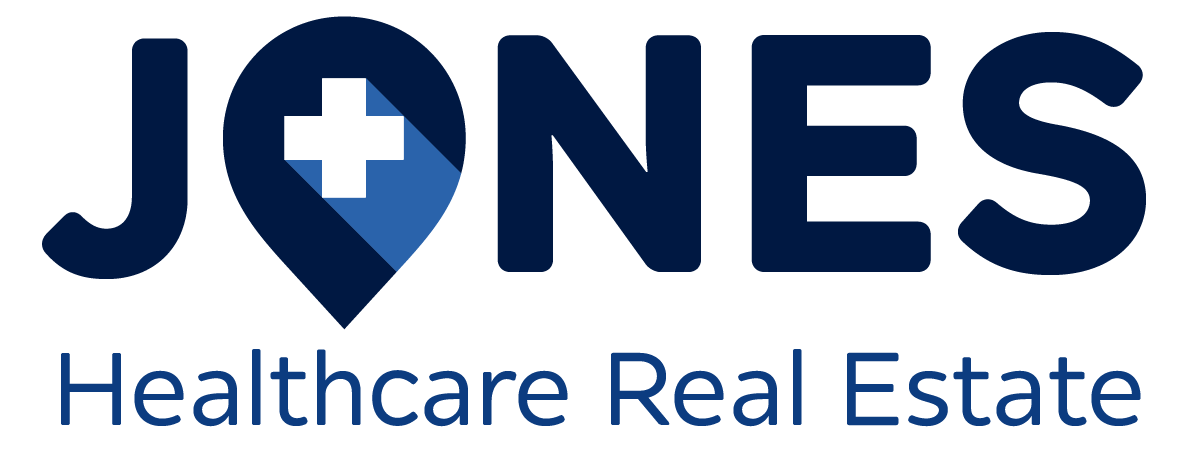
Frequently Asked Questions.
Tenant Representation
-
A Tenant Representative advocates exclusively for the interests and objectives of the Tenant. Our fiduciary duty means that every action we take promotes and aligns with your goals.
Hiring a Tenant Representative has numerous benefits, including:
Minimizing your lease costs
Maximizing Landlord contributions and concessions
Leveraging the market to give you the edge in negotiating a renewal or relocation
Avoiding costly delays and complications
Returning valuable time for you to operate and grow your business
No cost to the Tenant to hire an exclusive representative
Substantial monetary savings over the life of your lease
Contentment in knowing that you achieved the best possible lease termsy delays
-
Hiring a Tenant Representative costs nothing to the Tenant.
Jones Healthcare Real Estate seeks a commission from the pre-determined commission schedule the Landlord has agreed to with its own representative. If the Tenant chooses not to engage an agent to represent them, the Landlord's representative will receive the entire commission. Whether the Tenant is represented or not, the entire commission is already baked into the lease!
However, if the Tenant elects to hire a representative to advocate exclusively for their interests, the Landlord's representative will split the pre-determined commission with the Tenant's agent.
This reality is why Landlord's representatives DO NOT want Tenants to engage their own representative. Not only does it lead to more favorable lease terms for their client, the Landlord, it means more money for themselves!
-
Just as a Tenant Representative has a fiduciary duty to pursue and uphold your real estate objectives, the Landlord's agent has a fiduciary duty to uphold the Landlord's.
It is impossible to fairy represent two parties with opposing objectives!
The Landlord's agent is aligned exclusively with the building owner on the opposite side of the table from you. They are working against you in order to achieve the highest rental rates and lowest concessions possible in order to maximize profit for the Landlord. It works to their advantage when a Tenant works directly with them, because the Tenant will be severely handicapped by lack of market knowledge, negotiation experience and building information. This could benefit the Landlord by costing you hundreds of thousands of dollars more over the course of your lease.
-
100% YES.
Commercial lease or purchase contracts are legally binding documents that should be carefully and competently reviewed by a licensed real estate and contracts attorney. Real Estate License holders are not attorneys and cannot draft legal language or provide legal advice.
The Tenant's agent may negotiate the greatest lease terms in history, but it means little if the document into which they are incorporated leaves you legally exposed.
-
In most cases, tens to hundreds of thousands of dollars.
A Tenant Representative will negotiate tenaciously for the lowest possible occupancy cost and largest possible concession package from the Landlord. They will leverage the market to drive these objectives and ensure that you receive a fair deal. Over the life a lease and several renewals, these savings could easy amount to millions of dollars.
Additionally, hiring a Tenant Representative to advocate for your interests will return valuable time for you to continue operating your practice or business, limiting any interruption of service to your patients and customers. Negotiating real estate terms is not your primary business!
-
Healthcare real estate is a unique and specialized asset class. While medical tenants may elect to lease space in office or retail properties, the premises they occupy is very different from other tenants. Healthcare tenants often require vastly different infrastructure, build-out, hours of operation, parking requirements, capital commitments and leasehold provisions from those of standard office or retail tenants.
A knowledgable healthcare Tenant Representative also understands how to leverage your medical tenancy in the market as a specific benefit to Landlords. We make them compete for your business!
You specialize in healthcare. Make sure your representative does too.
If you're not sure, here are some questions to ask:
What percentage of your clients are in the healthcare industry?
What percentage of your clients are owners or Landlords?
How many are buildings do you currently lease?
Do you only represent tenants?
-
Landlords and their representatives absolutely LOVE when a Tenant takes a D.I.Y. approach to their real estate process.
Why?
Because they know an unrepresented Tenant likely is unfamiliar with key market information, lacks negotiating experience and may not fully consider timeline management and document review. Additionally, an unrepresented Tenant likely does not comprehend their own value in the market and has not fully examined all their available alternatives.
The Landlords representatives also love an unrepresented Tenant. Not only do they know they will achieve a higher rental rate for the building owner, they know they will not have to split their commission with a Tenant Representative! They achieve maximum income for the Landlord and get paid double in the process!
Don't go it alone. Hiring a Tenant Representative to advocate exclusively for your interests costs you nothing and in the end will more than likely save you a substantial amount of money and time.
-
It may be tempting to simply ask your attorney to handle your real estate transaction, but it's unwise to do so.
A competent real estate contracts attorney is a critical part of a Tenant's real estate team, but should be limited to providing legal advice and document review. Attorneys may lack key market intelligence and data, and are not ideally qualified to implement a complete and comprehensive real estate strategy which includes market analysis, site inspection and selection, business terms negotiation, financial analysis, timeline and critical dates management, etc.
The best strategy is to assemble a team and let each party focus exclusively on their area of expertise.
Key Considerations
-
Medical Real Estate transactions can take 12-18 months or more to fully negotiate and execute.
Time is your most valuable asset.
Real Estate costs are often the 2nd or 3rd highest expense for healthcare practices, and it's imperative to create a thoughtful plan to achieve your goals. More time reduces the Landlords or Sellers leverage by allowing Tenants and Buyers to thoroughly review the market, negotiate terms and complete construction materials.
Even if your lease does not expire for over a year, it's time to begin planning for renewal or relocation.
-
Ideal square footage can vary greatly for each office, clinic, lab and hospital.
Jones Healthcare Real Estate will partner diligently with you to determine the optimal footprint for your requirement, taking into account projected growth or additions.
For a quick reference guide, please utilize the Square Footage Calculator.
-
Hiring a knowledgable healthcare Tenant Representative is the first step to ensuring the lease you enter into contains the most favorable terms.
Jones Healthcare Real estate exists solely to represent healthcare tenants, and our proven process leverages your tenancy in the market to drive down your lease costs, maximize Landlord contributions and concessions, keep your requirement on schedule and avoid costly pitfalls and delays.
Let us show you how we tailor a strategy, process and team specifically for your real estate requirement.
-
A comprehensive real estate strategy contains many moving parts, and assembling a team of professionals who exclusively advocate for the Tenants interests and objectives is a crucial part of minimizing delays and headaches and returning valuable time to you for patient care and business operations. Jones Healthcare Real Estate helps Tenants assemble their team of professionals for each real estate requirement.
So what does a Tenant Team look like?
A Tenant Representative:
Develops and implements a tailored strategy for market analysis, site selection, financial analysis, negotiations and timeline management. Advocates exclusively on behalf of the Tenant against the Landlord or Sellers representatives.
Real Estate Attorney:
Reviews and amends legally-binding documents on behalf of the Tenant to limit legal exposure and ensure clear and equitable language.
Tenant's Architect-of-Record:
Designs and produces a space-plan based on the Tenant's needs, desires and vision for the space, maximizing efficiency and considering any planned or future expansion.
Construction Management Consultant:
Works in conjunction with the Landlord's contractors to ensure timely and satisfactory construction and delivery of all Tenant Improvements, including punch list items and installation of Tenant's Furniture, Fixtures and Equipment.
Other Team Members may also include:
Lender
Equipment and Supplies Provider
Furniture and Fixtures Vendor
I.T. Provider
Marketing Team
-
Real estate costs often represent the 2nd or highest expense for a healthcare practice or business after payroll.
A lease or purchase is a major decision, and represents a substantial capital commitment for many years if not decades. Remember that everything in real estate is negotiable, and minimizing lease costs could mean hundreds of thousands of dollars in savings for your practice or business!
Beyond the financial implications, the space your practice or business occupies is important to your patients and customers as well. An accessible, well-designed, clean and secure location is essential to patient perception, quality of care and employee recruitment and retention.
-
While Healthcare Tenants will frequently occupy space in traditional office or retail properties, there are distinct differences in their requirements from those of standard office or retail tenants.
Healthcare Tenants typically require supplemental infrastructure to supply adequate electricity, plumbing, HVAC and security. Build-out of the space may require specific materials either be incorporated or avoided, and they may require higher parking ratios and special hours of access due to frequency and timing of patient visits. Above-standard janitorial and specific waste removal process may be necessary, along with branding and directional signage.
There a many considerations a healthcare Tenant must take when evaluating its real estate. A knowledgable healthcare Tenant Representative can help ensure all these objectives are met.
-
A comprehensive real estate strategy should show you all of your options, including both lease and purchase opportunities that satisfy your requirements.
Your Tenant Representative should provide a detailed breakdown of these options and clearly illustrate both the economic and non-monetary implications of each.
Your real estate strategy should be forward-looking, as the life of both a purchase and a lease with associated renewals could easily span decades. A knowledgable Tenant Representative can help you identify which option is best for your practice or business, now and into the future.

